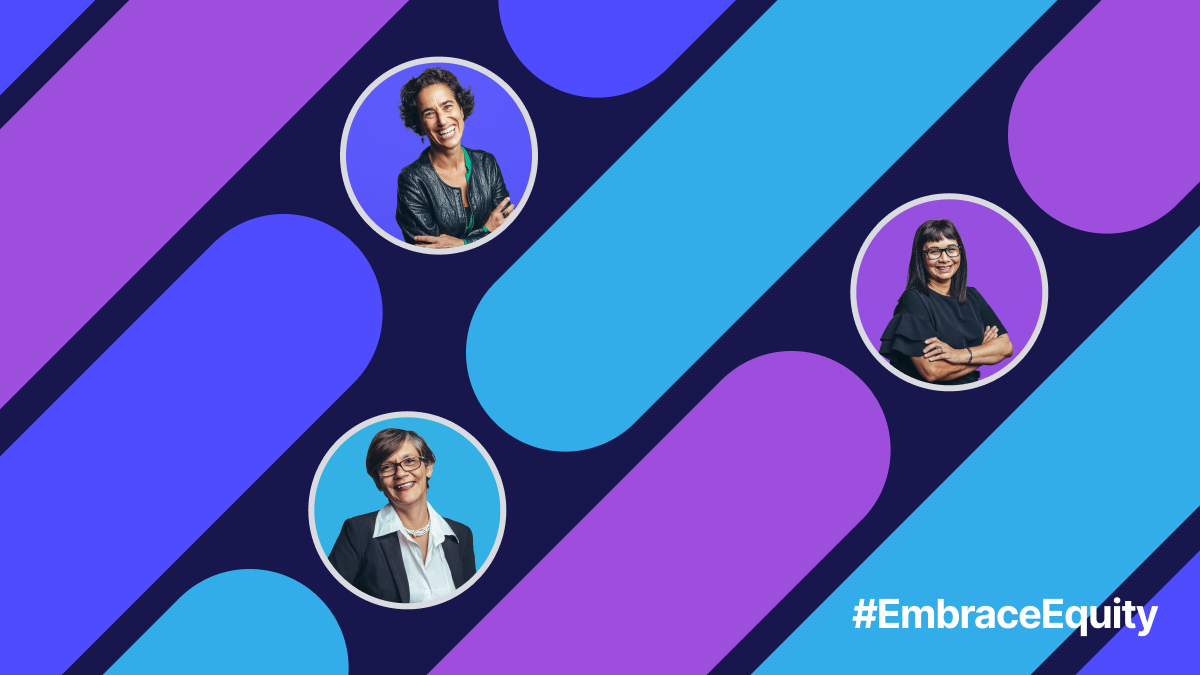International Women's Day 2023: Embracing equity and ethics for talent
Reejig
4 mins
Mar 7, 2023

International Women's Day 2023: Embracing equity and ethics for talent
Blog Post Body
Table of Contents
Talk to a Work Strategist
See the Work Operating System in action and start re-engineering work for AI.
Subscribe to our newsletter
The latest insights on re-engineering work for AI
International Women's Day (March 8th) is an international holiday celebrated annually that heralds women's rights and provides a platform for issues such as gender equality, reproductive rights, and violence and abuse against women. While empowering and recognizing female talent in the workplace is part of developing an ethical and diverse organizational culture and people management strategy, IWD provides an opportunity to think more deeply about what empowering women and practicing equity at work means, especially in the light of emerging technology.
While women are continuing to make strides in terms of leadership positions, seats at the table, and access to traditionally male roles such as STEM and the C-suite, it cannot be argued that gender-based bias exists. These biases are far-reaching and culturally-specific and include stereotypes about parenting, qualifications, and opportunity access. Unfortunately, these biases still persist in derailing many women at work, particularly in their mid-career. In addition to more overt gender bias, there are also socialized biases that persist that go unseen. For example, women are much less likely to highlight their own accreditations or successes, because women are socialized to give credit to others abundantly and instead provide a platform for their entire team, whereas men are more likely to feel comfortable speaking to their own successes. The result of gender biases and more covert societal influence results in an inequitable playing field, which consistently results in women waiting longer for promotions and pay bumps.
With these challenges in mind, this year’s theme of #EmbraceEquity could not be more relevant, particularly for people management and organizational culture. The digitization and embrace of workforce intelligence can actually help to mitigate some of the systemic issues that women face at work. For example, let us consider the skill sets embedded within an employee population. If organizational decision-leaders are reliant upon the qualifications they know about within their workforce, it is likely that this will be biased in favor of male employees, who are more likely to be comfortable positioning their accolades than their female counterparts. However, in creating a dynamic skills bank and skills ontology, wherein leaders and business development can proactively examine the skills, qualifications, and growth of individuals within the organization, the gender bias can be eliminated through providing an equitable platform and no longer relying on self-promotion or word-of-mouth.
Or, consider another obstacle, promotion timing. Organizations know that once talented employees no longer see opportunities for growth or career movement, it is only a matter of time before they begin looking elsewhere. The truth is, talented and ambitious individuals can always find another job, and your competitors are all-too-happy to employ your most talented people who become disengaged at your workplace. By using workforce intelligence, your management can see, at-a-glance, how long employees have been in the same position or role, understand their pay trajectory, and also anticipate when a talented individual is ready for a promotion or new challenge. Simultaneously, this type of data also provides an opportunity to actively curb gender bias, since those using the platform can see when employees at the same level tend to be promoted and make proactive changes if women in the same positions as their male counterparts are consistently promoted later, or paid less. The combination of the aggregated data and being able to look out for disengagement and turnover provides a win-win.
These are just a few examples that today’s organizations can learn more about their people, make concrete steps towards equity, and understand more about how to succeed long-term through helpful tools like digital data, artificial intelligence (which can provide predictive benefits), and promote a culture of fairness, recognition, and engagement.
How is your organization celebrating and championing International Women’s Day? What steps has your organization towards gender equity, and which are you most proud of?
Talk to a Work Strategist
See the Work Operating System in action and start re-engineering work for AI.
Subscribe to our newsletter
The latest insights on re-engineering work for AI